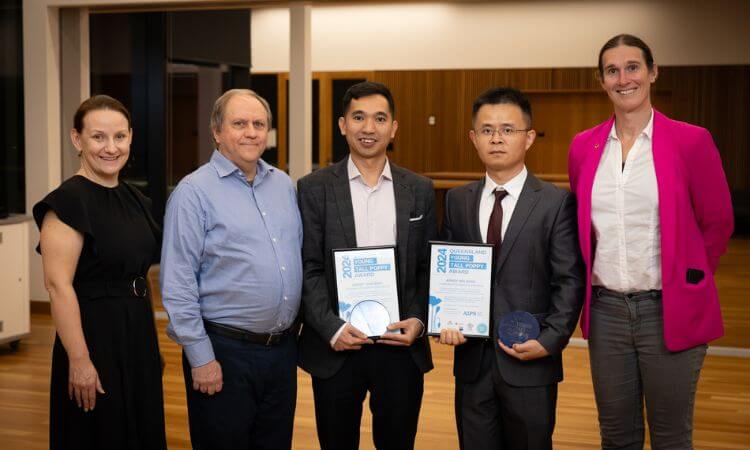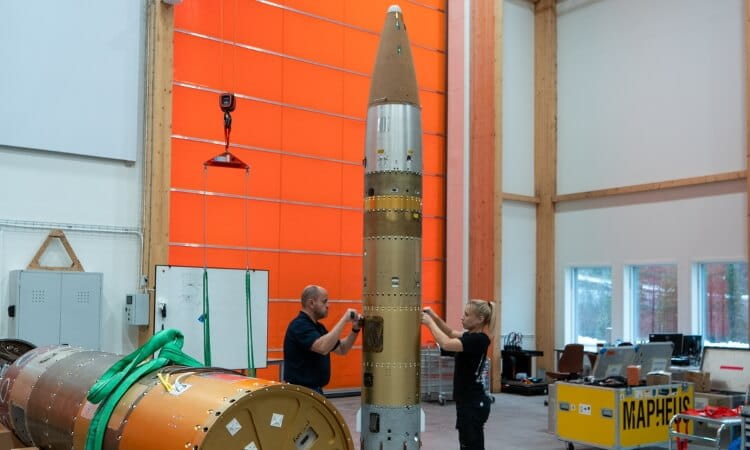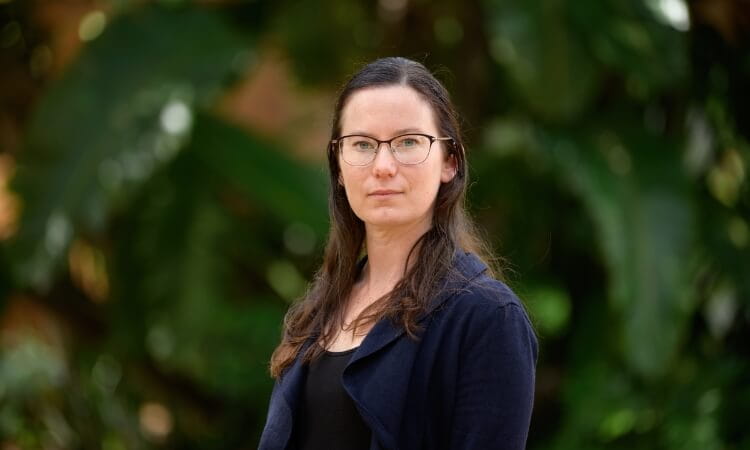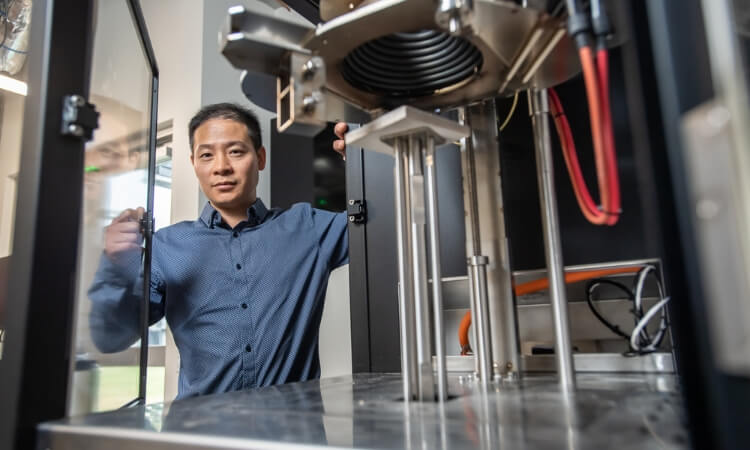Young researchers picked for Tall Poppy Award

A material scientist and a mechanical engineer from the University of Southern Queensland (UniSQ) have been recognised for their outstanding research and science communication at the 2024 Queensland Young Tall Poppy Science Awards.
Associate Professor Min Hong and Associate Professor Toan Dinh were among 16 Queensland scientists honoured at the award ceremony in Brisbane on Thursday (August 15).
The annual awards, which celebrate scientific excellence, are hosted by the Australian Institute of Policy and Science (AIPS) in partnership with the Office of the Queensland Chief Scientist.
Associate Professor Hong’s research aims to increase the practical applicability of thermoelectric technology in industrial and everyday settings.
“My research studies the inefficient use and loss of heat energy in industrial processes, vehicles, and electronic devices, which addresses a critical issue in sustainable energy,” he said.
“Despite significant advancements in technology, a substantial amount of the energy consumed in these applications is wasted as heat, representing a financial loss and contributing to environmental pollution through increased fossil fuel consumption.
“Thermoelectric materials uniquely can convert waste heat directly into electricity.”
Associate Professor Hong said his research supports global efforts to reduce reliance on fossil fuels.
“Australia is experiencing a growing demand for energy due to population growth, industrial expansion, and increased usage of electronic devices,” he said.
“In my research, enhancing energy efficiency and harnessing waste heat can alleviate the pressure on the energy supply and reduce the need for new power generation infrastructure.”
Associate Professor Hong said his current research was pushing the boundaries of thermoelectric materials.
“I’m exploring if these novel materials and innovative fabrication techniques can operate effectively across a wider range of temperatures and in more diverse applications,” he said.
“My focus is on transitioning from laboratory-scale experiments to industrial-scale production, which is critical for the practical application of thermoelectric technology.”
Associate Professor Dinh’s research aims to improve patient outcomes for people with respiratory disorders and reduce the healthcare burden associated with these conditions.
Respiratory disorders pose significant health challenges in Australia, affecting one-third of the population and leading to decreased quality of life and increased healthcare costs.
These conditions lead to various diseases, such as Chronic Obstructive Pulmonary Disease (COPD) and asthma, which often result in breathing difficulties, frequent hospitalisations, and a high burden on patients and their families.
Associate Professor Dinh employs advanced micro/nanofabrication techniques from engineered materials and structures that are soft, stretchable, and capable of adhering to human skin.
“I have developed innovative techniques to enhance the sensitivity and performance of micro/nanosensors significantly,” he said.
“These sensors can monitor respiration and biophysical signals with high accuracy, providing critical real-time data.
“I am collaborating with nurses and physicians to refine this technology further to create a commercialised platform that enables personalised medicine for respiratory diseases in daily environments.”
As Young Tall Poppy Science Award recipients, Associate Professor Hong and Associate Professor Dinh will become science ambassadors and participate in outreach activities to help inspire students and others to enter the world of STEM.
Learn more about studying Sciences and Engineering at UniSQ.


